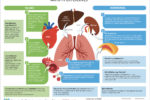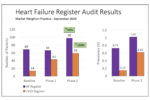How can nurses be better mental health advocates for their patients and colleagues during the pandemic? 2020 was designated by the World Health Organisation as the inaugural International Year of the Nurse and Midwife. The Covid-19 pandemic has highlighted the critical role nurses play in caring for the mental health of their patients and communities. This article […]
























